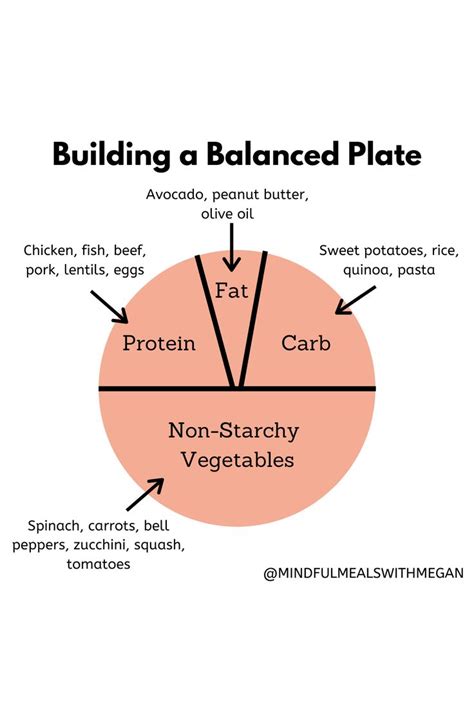Achieving peak male performance isn’t just about intense training; it’s fundamentally rooted in how you fuel your body. Whether you’re an athlete, a busy professional, or simply striving for optimal health, the right nutrition can be the game-changer for sustained energy, unwavering focus, and efficient recovery. This guide delves into the dietary strategies that empower men to operate at their best, day in and day out.

The Energy Engine: Macronutrients for Sustained Power
Your body’s primary energy sources come from macronutrients: carbohydrates, proteins, and fats. Balancing these is crucial for consistent energy levels without the dreaded crashes.
Complex Carbohydrates: The Long-Burn Fuel
Forget the myth that carbs are bad. For energy, focus on complex carbohydrates like whole grains (oats, quinoa, brown rice), sweet potatoes, and legumes. These provide a steady release of glucose, preventing blood sugar spikes and ensuring a continuous energy supply for both physical activity and cognitive function.
Lean Proteins: Muscle Repair and Satiety
Protein is vital for muscle repair, growth, and satiety, which helps manage weight and maintain stable energy. Aim for a variety of lean protein sources such as chicken breast, turkey, fish (salmon, cod), eggs, Greek yogurt, and plant-based options like lentils, beans, and tofu. Distributing protein intake throughout the day supports continuous muscle protein synthesis and minimizes muscle breakdown.
Healthy Fats: Hormonal Balance and Brain Health
Often misunderstood, healthy fats are essential for hormone production (including testosterone), nutrient absorption, and brain health. Incorporate sources like avocados, nuts (almonds, walnuts), seeds (chia, flax), olive oil, and fatty fish. These fats contribute to sustained energy, reduce inflammation, and support cognitive function.
Sharpening Focus: Micronutrients and Hydration for Mental Edge
Beyond macros, specific micronutrients and adequate hydration play a critical role in mental clarity, concentration, and cognitive performance.
Vitamins and Minerals: The Cognitive Catalysts
- B Vitamins: Crucial for energy metabolism and neurotransmitter production. Find them in whole grains, lean meats, eggs, and leafy greens.
- Magnesium: Supports nerve and muscle function, energy production, and relaxation. Abundant in dark leafy greens, nuts, seeds, and avocados.
- Zinc: Important for immune function, testosterone production, and cognitive processes. Oysters, red meat, nuts, and legumes are good sources.
- Omega-3 Fatty Acids: EPA and DHA, found in fatty fish (salmon, mackerel) and flaxseeds, are vital for brain health, reducing inflammation, and improving focus and mood.
Hydration: The Brain’s Best Friend
Even mild dehydration can impair cognitive function, leading to fatigue and reduced concentration. Aim for at least 8-10 glasses of water daily, increasing intake during physical activity or hot weather. Herbal teas and water-rich fruits/vegetables also contribute.

Optimizing Recovery: Repairing and Rebuilding Stronger
Recovery is where performance truly improves. What you consume post-workout and throughout your downtime significantly impacts muscle repair, inflammation reduction, and overall readiness for the next challenge.
Post-Workout Nutrition: The Anabolic Window
Within 30-60 minutes after exercise, consuming a combination of fast-acting carbohydrates and protein is crucial. Carbohydrates replenish glycogen stores, and protein provides amino acids for muscle repair and growth. A smoothie with protein powder and fruit, or a chicken and rice meal, are excellent choices.
Anti-Inflammatory Foods: Reducing Muscle Soreness
Incorporate foods rich in antioxidants and anti-inflammatory compounds to combat exercise-induced inflammation. Berries, dark leafy greens, turmeric, ginger, and fatty fish are powerful allies in reducing muscle soreness and speeding up recovery.
Sleep and Supplements: The Unsung Heroes
Quality sleep is non-negotiable for recovery. While a balanced diet is paramount, certain supplements can support recovery when dietary intake might be insufficient. Consider creatine for strength and power, and potentially vitamin D or magnesium if deficiencies are present, but always consult a healthcare professional before starting new supplements.

Strategic Fueling for Life: Practical Tips
Beyond individual foods, how and when you eat can further enhance performance.
- Consistent Meal Timing: Regular meals and snacks prevent extreme hunger and stabilize blood sugar, leading to more consistent energy and focus.
- Prioritize Whole Foods: Minimize processed foods, sugary drinks, and unhealthy fats that can lead to energy crashes and inflammation.
- Listen to Your Body: Pay attention to hunger cues, energy levels, and how different foods make you feel. This self-awareness is key to personalized fueling.

Fueling for peak male performance is an ongoing journey that combines strategic nutrition, adequate hydration, and smart lifestyle choices. By prioritizing nutrient-dense whole foods, understanding the role of macronutrients and micronutrients, and giving your body the recovery it deserves, you can unlock a higher level of energy, sharpen your focus, and accelerate your physical and mental regeneration. Start making these dietary shifts today to experience the profound impact on your overall well-being and performance.





